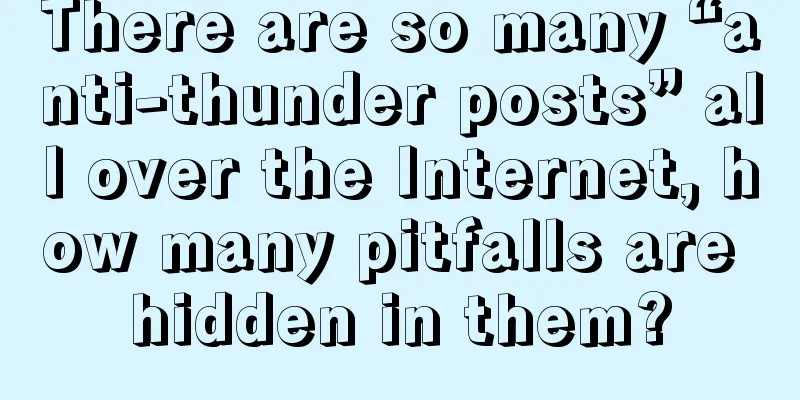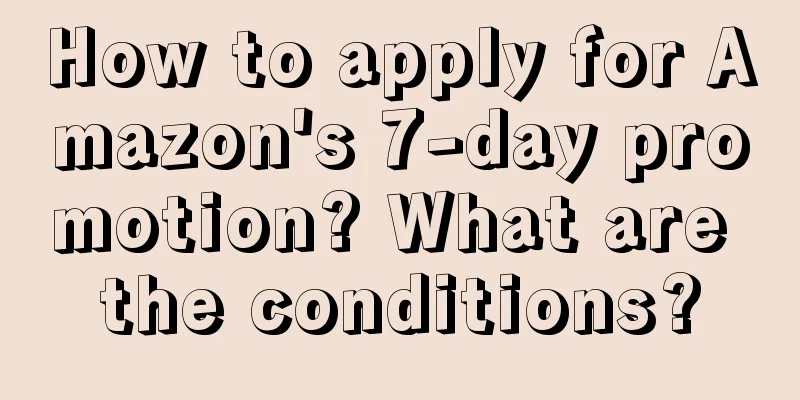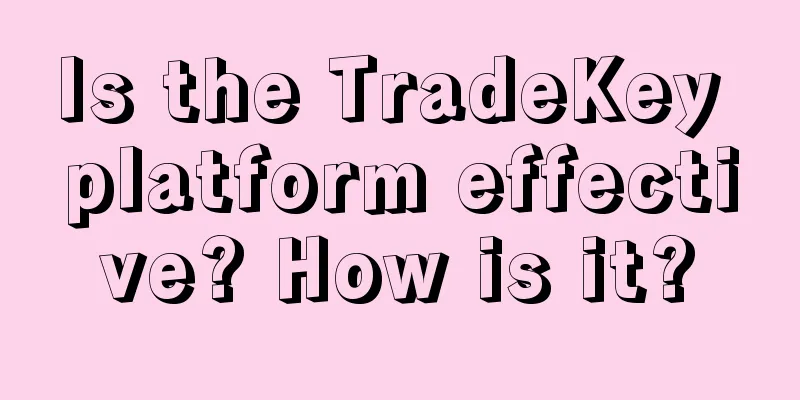There are so many “anti-thunder posts” all over the Internet, how many pitfalls are hidden in them?

"Avoid the lightning here! Avoid the lightning there! Please stop giving me lightning avoidance notices!" When you browse content platforms such as Xiaohongshu, Douyin, and Bilibili, do you often see warning posts? There are many young people who are driven crazy by warning posts. One user who couldn't stand the "avoid spoilers" post summed it up this way: Nowadays, people go out to play and avoid spoilers wherever they go; when people eat, drink, shop, and shop, they avoid spicy food, light food, expensive service, and cheap service. "Every little thing should be magnified and avoided; anything beyond one's acceptance and cognition is a spoiler." But once upon a time, when users became aesthetically fatigued by the screen full of grass-planting information, warning posts became a necessary step for users before consumption, and were regarded by users as an "anti-consumerism" weapon. Some users will not place an order immediately after being attracted by a product on a content platform. Instead, they will search on the platform, read reviews, compare prices, and learn how to avoid pitfalls. They will only place an order if the product meets their expectations. After receiving the goods, if the experience is not good, they will also share it on the platform with others to avoid pitfalls. However, the “lightning avoidance” has changed in the past two years. Just as “planting grass” once supported a group of KOL bloggers, “lightning avoidance” has gradually developed into a business. Some people pretend to avoid mines but actually promote products. After helping users clear mines, they recommend cooperative products or their own organization's services; some people pretend to avoid mines but actually criticize others. In their mine avoidance posts, they criticize their peers or publish false information; some people rely on avoiding mines to attract fans in the early stages, and then rush to cash in, consuming fans' trust, staging the common drama of "crashing as soon as they promote products." From "planting grass" to "avoiding thunder", many bloggers even "kill two birds with one stone", and users spend more and more time, but get less and less real and effective information. Behind the trend of "avoiding thunder", some industry insiders are worried that this content traffic business will repeat the mistakes of "filter deception" and "malicious bad reviews"? 1. Today's lightning protection posts are getting worse and worseNowadays, whether young people are going on a long trip during the summer vacation, buying something or looking for a job, they will be surrounded by warning posts. "Focus" summarizes that these posts are mainly divided into the following three types. The most popular ones are the "Internet Judgement Type" , such as a certain tourist attraction or restaurant is not worth visiting, a certain service or product purchased is a pitfall, a certain company is poorly managed, etc. This type of post has functions such as "real avoidance of pitfalls" and "public execution", which has promoted the popularity of thunder avoidance posts. "Internet Judge Type" Thunder Avoidance Post The bloggers who publish these posts use their real experiences to help netizens avoid pitfalls. Most of the content has a high number of likes and collections. At the same time, in the comment area, everyone will share their own experiences of stepping into pitfalls and give each other rights protection suggestions. The original intention of this type of post was good, and it did have some effect. But later, "clickbait-style, anti-planting-type lightning avoidance posts" that grasp the password of traffic began to rise. This type of lightning avoidance post seems to be avoiding lightning, but it is actually advertising. The most common one is to avoid risks from a third-party perspective , publishing posts with sentences like "Avoid doctors in medical beauty/plastic surgery hospitals across the country, list of people who should be dissuaded from doing so/summary of their reputation", "Another institution to avoid for studying abroad/graduate entrance examinations", "Run away if you encounter a store like this", etc., giving similar reference suggestions in the copy, but actually doing referral business. In the comment section of such posts, users are instead "motivated" and ask for "reliable institutions/hospitals" and "also how about this store, has it been tested?" The bloggers then communicate privately and recommend the services of their own institutions or institutions with which they have cooperated. Others claim to be insiders or practitioners , disseminating "insider information", such as "a guide to avoiding lightning strikes in renovations, be sure to ask these questions when purchasing large items", "if you don't want to be cheated by wedding photos, eight years of experience in the industry will teach you how to sign a contract", "those preparing for the postgraduate entrance exams come in to avoid lightning strikes, people who have experienced it will tell you how to sign up for classes without being cheated", etc. Can you really avoid pitfalls by learning these? The manager of a bathroom brand told "Dingjiao" that in the past two years, many young people often asked a few similar questions when they came to buy bathroom furniture. After asking so many questions, she realized that these were temporary questions learned by customers on social platforms. But in fact, these questions cannot help them choose the products that are really suitable for them , because the industry products are updated as a whole, and some questions are no longer applicable. Asking these questions will expose that you are a novice, so it is better to try and feel the products on site before choosing. Some posts say the opposite of what they mean , for example, the title reads "I regret coming to this restaurant", while the content says "I regret not coming earlier"; the title reads "Avoid! Have you tried XX brand melons?" while the content says "Freshly out of the oven, XX brand has just launched"; the title reads "The photographer should avoid, the photos he took were all with his eyes closed", while the content says "The real expressions were captured throughout the whole process, customers love it, welcome to make appointments for photos", etc. Now that the grass-planting economy has developed into a mature stage, more and more businesses are paying for traffic and promotion. Li Ke, a senior short video operator, pointed out that the purpose of the anti-grass-planting type of lightning-avoidance posts is to attract users' attention first and then convert them, while this type of lightning-avoidance-turned-sales promotion posts often have promotion behind them, which is why there is this set of pit-avoidance strategies and guidelines. Of course, nowadays "lightning avoidance" is not only linked to business, but has also become a channel for some people to play memes, vent emotions, and gain attention. "Crazy" lightning avoidance posts have begun to occupy social platforms. The content of such posts often lacks common sense and has nothing to do with "lightning avoidance." Some people use the keyword "avoid thunder" to make fun of others, such as posting selfies or outfits with the title "avoid thunder for this person in XX city", but the body of the article is actually showing off or complaining about friends, such as "this person is better looking in person than in the retouched photo" or "this woman eats hot pot with sesame paste". Another example is someone "avoiding thunder for friends who are not yet born". Some people will avoid lightning because of some minor or even irrelevant factors, such as avoiding lightning because of their period coming early at a city airport, thinking that the city gives people too much pressure and the sense of happiness in life is too low; for example, they avoid a certain theme park because there is no smell of dinosaurs, thinking that dinosaurs are too fake; for example, they avoid a certain civil affairs bureau because the decoration is not good-looking or the door is not open; another example is "I came to see the bougainvillea in February, but I said I had stepped into a trap when the flowers are withered." "Crazy" lightning protection stickers There are more and more warning posts, which make users dizzy and angry. Users living in the local area believe that many problems are not caused by local stores or amusement parks, but by the poster's lack of common sense or emotional approach to the problem. Foreign tourists believe that when they wanted to search for travel guides to a certain place, the first post they found was someone's selfie or illogical avoidance, "after looking for a long time, they still don't know what tourism in this place is like." 2. How did the lightning protection post go astray step by step?In fact, the initial popularity of warning posts was a balance for the platform to avoid "excessive planting" and "filter deception". Planting grass refers to the process of recommending something to others to make them want to buy or consume it. The planting grass effect has been verified countless times in the past, bringing more and more consumption locations, consumer brands and service methods to the forefront. It has also become one of the most popular content forms for major apps because it can increase user stay time and promote transaction conversion. However, these contents, which are designed for promotion and monetization, often emphasize refinement and quality in order to simultaneously attract users and cater to the needs of the brand. Over time, users begin to feel aesthetic fatigue, and the "filter deception" incident on the grass-planting platform breaks out. The two most widely circulated cases are: one is to turn bare brick-red gravel into a pink beach, and the other is to turn a dry yellow grassland full of garbage into an exquisite camping site on the grassland. "Tired of blindly retouching filters, platform traffic began to shift to more authentic content." In Li Ke's opinion, the platform made such a choice to balance the community atmosphere and user preferences, because the platform noticed that young people who no longer wanted to be "tricked" began to resist refinement, and gradually developed the habit of "avoiding mines first, then consuming", and learned to search for content using methods such as "keywords + avoiding mines, stepping into pitfalls". Song Lang, a senior community product manager, analyzed the popularity of "lightning avoidance" content. In terms of traffic, now is an era of bloggers per capita, and many platforms have decentralized traffic distribution mechanisms. "Lightning avoidance" content is more realistic and trustworthy than "grass planting" content, and can attract more users. In terms of monetization, in the past few years, major live-streaming e-commerce platforms have been managing soft advertisements that bypass the platforms, while lightning avoidance content is secretive enough and can also import fans accumulated on major platforms into their own private domains for subsequent transactions. But why did the lightning-avoiding post gradually turn into a thunder? One of the important reasons is that the popularity of lightning avoidance posts is getting higher and higher. Where there is traffic, there are people who want to share the traffic. Bloggers want to earn traffic and brands want to advertise. They use "lightning avoidance" as a starting point and use users' trust to start a "reverse planting" business, but they are trapped by their personalities and find it difficult to develop sustainably. On short video platforms, many beauty bloggers, fashion bloggers, and review bloggers have all benefited from the traffic dividend of "lightning avoidance". One common type of "lightning avoidance" bloggers will test and evaluate the clothing stores of Internet celebrities on e-commerce platforms. They emphasize their ordinary body and height, and try on and compare shoes and clothes in front of a camera without filters or legs, so that users can "avoid lightning." Another common type of "lightning avoidance" bloggers are ingredient evaluations and personal trials. They buy almost all brands of similar products on the market to experience and evaluate them, and finally evaluate the most "resistant" brands but each of them has some minor shortcomings. This type of "mine avoidance" blogger can quickly accumulate a group of loyal fans because of his outspoken character, real reviews and the personality of "not letting users waste money in vain", but it is easy to have contradictions that are difficult to "justify" when it comes to monetization in the later stage. Another reason is that Li Ke mentioned that avoiding potential risks is a relatively subjective starting point. For an internet celebrity restaurant or internet celebrity brand, some people may be promoting it while others may be avoiding it. Consumers cannot tell the difference and still contribute their time, traffic and wallets. A coffee shop owner revealed his helplessness to "Dingjiao". As a businessman, he has "shadows" about both planting grass and avoiding thunder. New stores need to be promoted, and store exploration bloggers are welcome to come and recommend the store. However, most of the current store exploration bloggers are too enthusiastic. Not only are their tweets all the same exquisite but lack practical persuasiveness, but sometimes merchants are unable to communicate with the influencers individually, and they have to rely on third-party agencies to arrange for bloggers to take turns visiting the store, which sometimes has a "counterproductive effect" after the content is released. As for appropriate and reasonable "avoid thunderbolt" complaining posts, he welcomes them , because they contain some good operational suggestions. If the store apologizes and provides after-sales service, it can actually win goodwill on the social platform. However, many "avoid thunderbolt" posts have confusing logic and "give bad reviews for the sake of giving bad reviews". In order to keep things quiet, the store needs to communicate with each one. There are also customers who take the initiative to ask for a refund and delete the "avoid thunderbolt" posts. At the same time, some peers direct and perform their own "anti-threat posts", some of which are to promote themselves, and some are to avoid their competitors, which also increases the difficulty of operations for businesses on social platforms. Many merchants said that they encountered many consumers who followed the trend of checking in while posting to avoid bad reviews. Some even threatened to post to avoid bad reviews on social platforms when they were a little unhappy, using this as a bargaining chip to achieve their own goals, which is exactly the same as the threat of "bad reviews" in the past. "I hope everyone can see both sides of the matter, analyze rationally, and don't generalize." said a merchant. 3. When "anti-thunder posts" become a routine, young people are no longer easy to deceiveHow long will this "lightning avoidance" wind last? Consumers who are tired of the aesthetic of "planting grass" have begun to dislike "avoiding mines". According to incomplete statistics, airlines, star-rated hotels, tourist destinations, etc. across the country have basically encountered "lightning rods". Some users said that they often avoid lightning rods, but when they really want to avoid pitfalls, they can't find any information that can satisfy them and is useful to them after searching for half an hour . "It is recommended that you put a lightning rod on your head when you go online now." Many "lightning avoidance" bloggers also choose to transform in other directions in an attempt to extend the life cycle of their fans because they encounter bottlenecks or failures in monetization. A fan told Dingjiao that he initially followed a certain "slightly plump" blogger because she was used to showing off her excess fat before trying on clothes, "refusing to be anxious about her appearance," and the evaluation results were very real. But later, after the blogger put on a certain piece of clothing, she would suddenly "become taller and thinner," and the comments section would "ask for a link," with some questioning "is the fat on her body fake?" and "is she wearing a corset?" These comments would quickly "disappear." The above-mentioned fans said that some review bloggers will gradually become subjective and formulaic, such as exaggerating certain details or elevating individual likes and dislikes to the level of group minefields , but such methods will only disappoint fans. A marketing company employee revealed that generally speaking, brands will simultaneously deploy many seed bloggers and KOLs in the early stages of marketing a product, and when the product enters a stable sales period, they will look for "anti-threat" bloggers to conduct reviews and find new selling points to revive the brand, and the latter will "offer a higher price." Some "anti-threat" bloggers will directly monetize through the "blacklist" method. However, the above monetization methods cannot be developed in the long run. Some bloggers who "avoid thunder" will choose to sell accounts, sell goods through live broadcasting, transform into e-commerce (opening stores), etc. to realize their own business, but the challenges are greater. Because self-operated e-commerce and live broadcasting require more time to select products, accumulate supply chains, and after-sales service, the focus of the content will also be on promoting their own brands. From the consumer's perspective, "avoiding lightning" originally meant staying away from consumer traps, but now we have to be more careful than before. "Now, every time a user browses a post to avoid potential risks, he or she has to go through a triple trust test: whether to trust the blogger, whether to trust netizens, and whether to trust the platform. The process of building trust has become more complicated, and it requires joint efforts from users and platforms to reconstruct the atmosphere and culture within the platform," said Song Lang. Users cannot be led by "avoidance notices". They need to first examine what kind of products and services they really need, and then distinguish based on their own needs which information is valid and which is just following the trend or being a spoof. If they are dissatisfied during the consumption process, they need to first complain to the boss. If the boss does not resolve the issue, they should then objectively avoid the problem based on the actual situation. At the same time, the more rampant "avoidance posts" become, the more the platform should focus its governance on the "authenticity and effectiveness of the content" to allow users to understand merchants or brands more efficiently. Li Ke pointed out that it is precisely because many content platforms are hesitant about the boundary between "advertising and content" and the rules of "traffic preference and monetization efficiency" are constantly changing that many people have the opportunity to take advantage of it. After experiencing round after round of "lightning avoidance" baptism, users are no longer so easily fooled. Author: Su Qi; Editor: Wei Jia Source: WeChat public account: "Dingjiaoone (ID: dingjiaoone)" |
Recommend
How much does it cost to register a trademark on Amazon? How much does it cost to open a store?
Many merchants on Amazon want to register a tradem...
Can the AI anchor in the live broadcast room create a new world?
Recently, the live streaming industry has been tre...
AI Taobao store, after 2 months of operation
Lumi Micro Store was founded in April 2022, and ha...
In 2023, Douyin will fall in love with pictures and texts, and Xiaohongshu will fall in love with e-commerce live streaming
In the context of the peak of Internet growth, maj...
The logic of doing business has changed. Don’t wait until it goes bankrupt to find out.
Information flows too fast nowadays. The methodolo...
These three sets of copywriting are so beautiful
These three sets of copywriting were written with ...
Why did Amazon traffic suddenly decrease? What is the reason?
Generally speaking, the traffic of Amazon stores d...
The post-00s generation has once again made music-based health regimen popular!
The way of health preservation for the post-00s ha...
Which overseas third-party payment platform is better? Tell you how to choose
With the rapid development of globalization and e-...
250 beverage collaborations reviewed: FENDI and Moutai are hard to copy, the cute style loses to the sad style
In this joint competition that brought together 25...
Which cross-border e-commerce platform is the best and most reliable? How can a novice do cross-border e-commerce?
Faced with so many platform options, sellers often...
Why can Amazon allow follow-selling? Why is follow-selling allowed?
The advantage of Amazon sellers following sales is...
How to find the source of goods for cross-border e-commerce? Method introduction
Cross-border e-commerce is becoming more and more ...
What are the cross-border e-commerce platforms? How to choose a platform?
Merchants who want to do business overseas now usu...
Do I need to pay an annual fee for an independent website? How much is the monthly rent for an independent website?
In the field of e-commerce, independent websites h...









